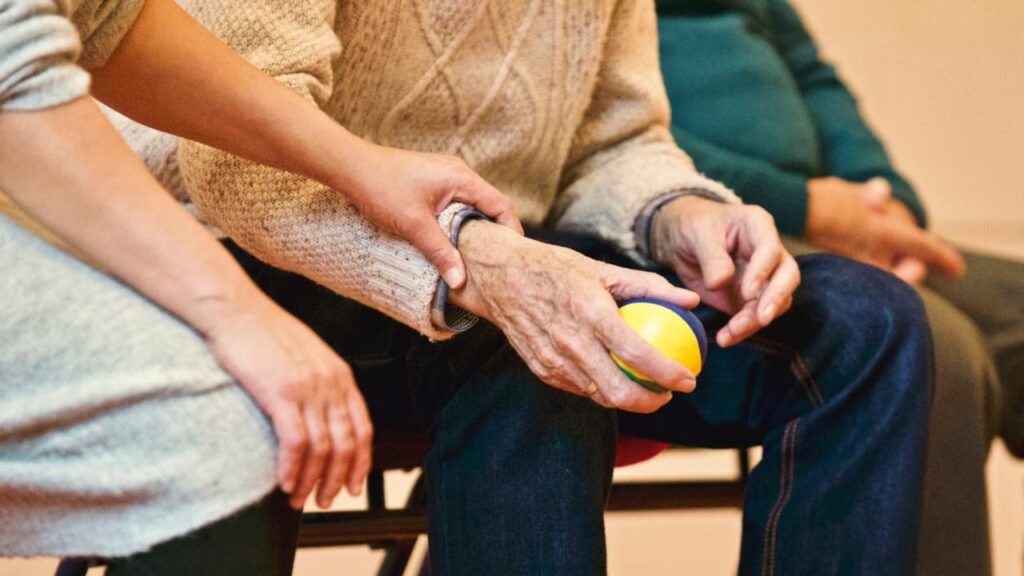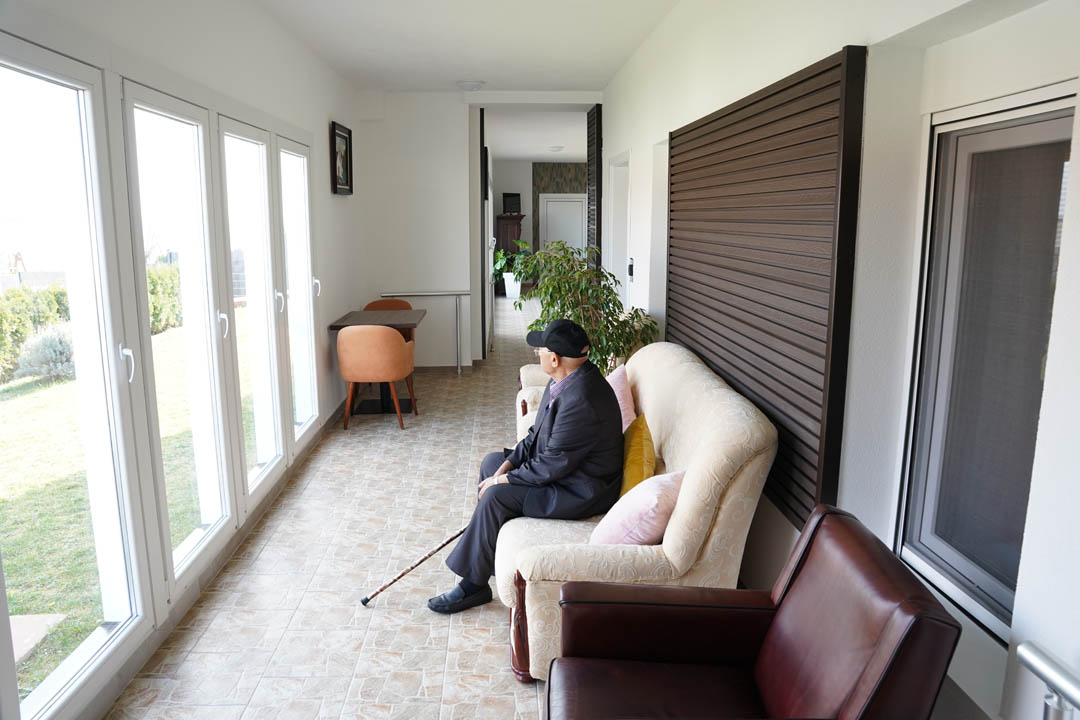Senile Dementia is a serious medical condition that affects millions of elderly people around the world, posing a significant challenge for both individuals and their families and healthcare systems. This condition is characterized by a gradual decline in cognitive functions, which significantly affects daily life and the ability to function independently.
What is dementia?
Dementia is not a specific disease, but a general term that describes a wide range of symptoms associated with impairment of memory, thinking, and social skills. These changes are serious enough to interfere with a person’s daily life. The most common cause of dementia is Alzheimer’s disease, but there are other forms such as vascular dementia and frontotemporal dementia.
Symptoms of dementia
Symptoms of dementia are key indicators that may point to the presence of this complex condition that affects the brain and disrupts a person’s normal functioning. Although symptoms vary depending on the type of dementia and the stage of the disease, there are several common signs that can help in early identification and adequate response.
Memory loss that interferes with daily activities
This is often one of the first and most noticeable symptoms of dementia. People may forget recent events, names of close people, or even important dates that were previously well known to them. Memory loss can significantly disrupt daily activities, such as paying bills, taking medications, or managing a household.
Difficulties in planning or solving problems People with dementia may have problems sequencing the steps needed to complete tasks or understanding and following more complex plans. This may include difficulties in preparing meals, managing finances, or planning the day.
Misplacing things and inability to retrace steps One of the common symptoms is also putting things in unusual places and the inability to remember the steps to find them again. This can lead to frequent loss of personal items, such as keys, wallet, or mobile phone.
Challenges in performing familiar tasks Dementia can affect a person’s ability to perform tasks that were once routine, whether at home, at work, or during leisure time. This can include forgetting the rules of a game they often play, problems using household appliances, or even driving a car.
Difficulties in verbal communication People with dementia may have difficulty finding the right words, finishing sentences, or may repeat the same stories or questions. They may also have trouble following or participating in conversations, leading to social isolation.
Disorientation in time and space Dementia can cause people to lose track of time and dates, or even forget where they are, which can lead to disorientation and wandering behavior.
Reduced ability to make decisions Changes in decision-making ability may manifest through poor financial decisions, inappropriate dressing for the weather, or neglect of hygiene.
Changes in mood and personality
People with dementia can experience changes in mood, such as irritability, depression, or apathy. They can also show changes in personality, become suspicious, fearful, or behave outside their usual norms of behavior.
Early recognition of these symptoms and timely seeking of medical help are crucial for managing dementia. There are treatments that can help slow the progression of the disease and improve the quality of life for both the person with dementia and their loved ones.
What is mild dementia, progressive and what is galloping dementia?
Mild dementia is characterized by initial symptoms that mainly include forgetfulness, difficulty finding the right words, and minor changes in behavior and planning ability. These changes are usually mild enough not to significantly interfere with daily activities and social interactions.
Progressive dementia refers to dementia that worsens over time. This type of dementia, such as Alzheimer’s disease, progresses in several stages from mild to moderate to severe dementia, where symptoms become increasingly pronounced and disruptive.
Galloping dementia refers to the very rapid progression of dementia, where symptoms rapidly worsen within a few months to a few years. This form of dementia can be particularly difficult for patients and their families because of the speed at which cognitive and physical abilities are lost.

Stay of a Person with Dementia in the Rehab Senior Nursing Home – Alexander Ville
Staying in a nursing home for a person with dementia can provide numerous benefits, both for the person with dementia and for their family. The Rehab Senior nursing home is specialized in caring for people with dementia and offers a structured environment, professional care, regular meals, social activities, and safety. The staff is trained to provide specialized care that includes managing therapies, assisting with daily activities, and monitoring health conditions. This can significantly improve the quality of life of a person with dementia and reduce stress for family members.
Is dementia a hereditary disease?
Dementia can have genetic components, especially in cases of early-onset Alzheimer’s disease, which are rare and occur in people younger than 65 years old. In these cases, there is a clearer hereditary predisposition. However, most cases of dementia, especially those occurring in later life, are multifactorial, meaning they involve a combination of genetic, lifestyle, and environmental factors. Knowing family history can help assess risk, but does not guarantee that a person will develop dementia.
How long do people with dementia live?
The life expectancy of a person with dementia can vary significantly, depending on the type of dementia, the age at which the diagnosis is made, and the person’s general health condition. On average, people with Alzheimer’s disease can live 4 to 8 years after diagnosis, although some can live up to 20 years, depending on other factors. It is important to emphasize that proper care and support can improve the quality of life and, in some cases, prolong life.

Caring for Dementia Patients in the Home
Stopping dementia
Dementia is a complex disorder that cannot be completely avoided, but there are ways we can reduce the risk of its development. Implementing certain lifestyle changes can help preserve mental functions and slow the potential progression of dementia.
Exercise and dementia
Regular physical exercise is one of the most effective ways to fight dementia. Exercise improves blood circulation to the brain, which can help maintain healthy brain cells and stimulate the growth of new ones. At least 150 minutes of moderate aerobic activity per week is recommended, such as brisk walking and swimming.
Mental stimulation and dementia
Engaging in activities that require thinking and problem-solving can help maintain brain activity and slow down dementia. This includes reading, solving crossword puzzles or Sudoku puzzles, learning a new language, or playing musical instruments. Regular mental stimulation can increase the brain’s cognitive reserve, which helps the brain be more resistant to damage associated with dementia.
Social engagement and dementia
Maintaining social connections can have a significant positive effect on mental health. Interacting with others stimulates the brain in multiple ways, which can contribute to its resilience. Social activities can include spending time with friends and family, participating in group activities, or volunteering.
Stress management and dementia
Chronic stress can negatively affect the brain, especially areas that regulate memory. Practicing stress management techniques, such as meditation, yoga, deep breathing, or progressive muscle relaxation, can reduce the damage stress can cause to the brain.
Sleep and dementia
Quality sleep is critical for ‘cleaning’ the brain of toxins that accumulate during the day. Lack of sleep or poor sleep quality can increase the risk of developing dementia. It is recommended to get 7-8 hours of quality sleep every night to keep the brain healthy.
By implementing these lifestyle changes, one can significantly contribute to reducing the risk of developing dementia. In addition, it is important to monitor other aspects of health such as diet, managing chronic diseases, and regular medical check-ups that can contribute to overall well-being and preservation of cognitive functions.
Frequently Asked Questions about Dementia
1.What causes dementia?
Dementia can be caused by various factors, including neurodegenerative diseases such as Alzheimer’s disease, vascular problems such as strokes, and other medical conditions. It is often the result of a combination of genetic, lifestyle, and environmental factors.
2.Are all cases of dementia the same?
No, there are different types of dementia. Each type has different causes, symptoms, and progression.
3.How can I recognize the early signs of dementia?
Early signs include forgetfulness, difficulty planning and problem-solving, difficulty with everyday tasks, language problems, disorientation in time and space, and changes in behavior and mood.
4.Who is most at risk of developing dementia?
The risk of dementia increases with age, especially after 65 years of age. Other risk factors include genetic predisposition, heart disease, diabetes, high blood pressure, obesity, smoking, depression, and a lifestyle with low levels of mental and physical activity.
5.Can dementia be prevented?
Although dementia cannot always be prevented, healthy lifestyle choices can reduce the risk. This includes maintaining an active social life, regular mental and physical activities, a healthy diet, controlling body weight, maintaining heart health, and avoiding smoking.
6.How is dementia treated?
Treatment for dementia focuses on alleviating symptoms and improving quality of life. This may include therapies to support behavior, as well as lifestyle changes. In addition, the support of family and professionals who can help manage daily challenges is important.
7.How can I help a loved one with dementia?
Support can include assistance with daily activities, ensuring a safe environment, maintaining a routine, patient and calm communication, as well as encouraging socialization and activities that stimulate the brain. It is also important for you as a caregiver to take care of your own health and well-being.
If you need care for a person with dementia, we have permanent or temporary accommodation within our home, we also have rehabilitation with top-of-the-line equipment. See the gallery of our senior living home Alexander and call us.





